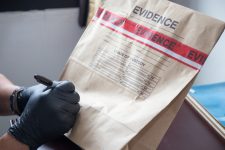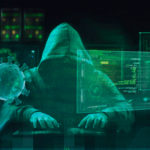When Can Illegally Obtained Evidence Be Excluded?

Evidence that is being used in a criminal case needs to comply with a range of rules, and there are certainly limits on what can and can’t be used as evidence in a courtroom.
The admissibility of evidence in NSW is primarily governed by the Evidence Act 1995.
Evidence illegally obtained
Section 138 of the Act stipulates that evidence may be excluded if it was ‘illegally or improperly obtained’.
Illegally obtained evidence is that which is collected in contravention of NSW law.
Although the Evidence Act states that evidence obtained in this way can be excluded, there are a number of situations in which the judge or magistrate can exercise their discretion and choose to include it.
It is important to be aware that police often build cases using evidence that is illegally obtained or otherwise liable to exclusion, and that identifying such evidence can lead to a case being dropped or thrown out of court.
What is illegally obtained evidence?
Evidence that has been obtained illegally can include:
- Any evidence arising from an unlawful search of a person, their car or their home.
- Conversations between individuals recorded without the knowledge and/or consent of both where is no valid warrant.
- Video or CCTV recordings of a person on private property, taken without their consent and without a valid warrant.
- Documents that have been obtained through illicit monitoring of an person’s computer or other electronic means without a valid warrant.
Other forms of inadmissible evidence include most hearsay evidence, most opinion evidence and confessions or admissions that have been obtained through improper questioning.
In NSW, a parliamentary inquiry into illegal bugging by police officers has just been launched, investigating allegations of improper and illegal surveillance of police officers by the NSW Police Special Crime and Internal Affairs unit.
The alleged misconduct took place in an investigation running from 1999-2001 where over 100 police officers and a journalist were placed under surveillance.
Although warrants had been obtained from the NSW Supreme Court authorising the surveillance, it has been reported that some of the information used to obtain those warrants was falsified, thereby making the surveillance illegal.
What about DNA evidence?
The Evidence Act does not specifically outline situations where DNA evidence is admissible or otherwise
However, the Crimes (Forensic Procedures) Act permits police to lawfully take DNA samples from a crime scene, or from a person with their knowledge and consent.
But importantly, if the consent requirements of the Act are not satisfied, the sample gathered will be subject to exclusion in court.
How does a court decide whether illegally obtained evidence is admissible?
The Evidence Act outlines a number of competing considerations that a magistrate or judge must take into account when deciding whether to allow illegally obtained evidence to be used in court.
These include:
- The desirability of admitting the evidence,
- The undesirability of admitting evidence that has been obtained in that way.
- The importance and value of the evidence to the overall proceedings.
- The extent to which the law was broken or the level of impropriety used in obtaining the evidence.
- Whether the breach of law or impropriety was done deliberately or recklessly.
- The ease or difficulty of obtaining the evidence without resorting to the impropriety or contravention used.
The court will weigh-up these considerations and make a decision as to whether a particular piece of evidence will be allowed.
Anti-terror laws force courts to accept illegally obtained evidence
In terrorism-related cases, courts will now be forced to accept certain types of evidence that would normally be regarded as illegal.
The changes were brought about through anti-terrorism legislation implemented last year.
The types of evidence that will become admissible in court include information obtained through covert means that would not be considered legal under other circumstances.
What should I do if I am charged with an offence?
Identifying evidence that is likely to be inadmissible can make all the difference when it comes to winning criminal cases.
Often the worst thing you can do is to blindly accept the police allegations and plead guilty to charges that you don’t fully understand without consulting a lawyer.
A good criminal lawyer will be able to explain the charges against you, your options, the best way forward and the likely outcome.
Several lawyers offer a free first appointment where you can get a lot of important information without any obligation to pay them to represent you.
A specialist criminal defence lawyer will often be able to find problems with the case against you – for example, you may have been illegally searched, or evidence may have been illegally gathered without a warrant, or the warrant may be invalid or defective.
An experienced lawyer will often be able to detect potential problems by just reading the allegations contained in your police papers.
If the lawyer believes that the case against you may have problems, they can force police to hand-over all relevant materials by serving a ‘subpoena’ upon them. Issuing a subpoena can indicate to the other side that you ‘mean business’ and that you won’t allow police and investigators to get away with illegal conduct.
If police have overstepped the mark, a good lawyer will often be able to get the charges against you dropped or downgraded even before the case gets to a defended hearing or jury trial.
If the prosecution refuses to play ball, a good advocate (courtroom lawyer) will often be able to have the case thrown out of court, and in some cases will be able to convince the court to force police to pay your legal costs.






